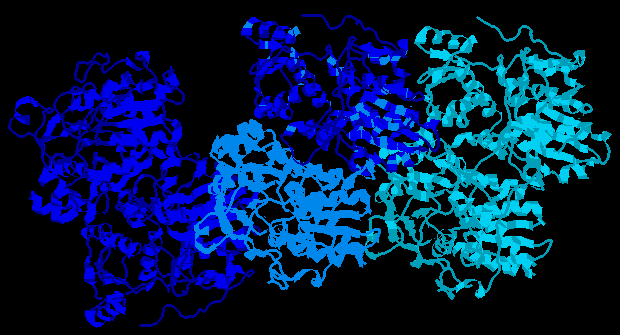 |
 |
 |
Click on the image to start downloading the PDB file (tridimensional and interactive).
b-thionase
Methylcysteine synthase
2.Carbon-oxygen lyases
1.Hydro-lyases
L-Homocysteine
L-Cysteine
Cysteine thioether
b-Substituted a-L-amino acid
H2O
A multifunctional enzyme: catalyzes b-replacement reaction between L-serine, L-cysteine, cysteine thioethers or some other beta- substituted alpha-L-amino acids and a variety of mercaptans.
Evolutionary related to cysteine synthase(EC 4.2.99.8), a pyridoxal-phosphate dependent
enzyme responsible for the formation of cysteine from O-acetyl-serine and
hydrogen sulfide with the concomitant release of acetic acid. In bacteria such
as Escherichia coli, two forms of the enzyme are known.
In plants there are also two forms, one located in the cytoplasm and the other
in chloroplasts. The pyridoxal-phosphate
group of CSases has been shown to be attached to a lysine residue which is
located in the N-terminal section of these enzymes; the sequence around this
residue is highly conserved and can be used as a signature pattern to detect
this class of enzymes.
Reference